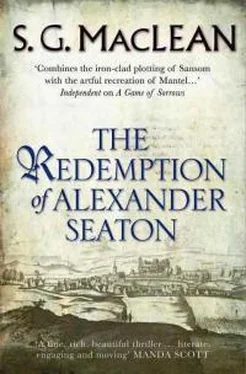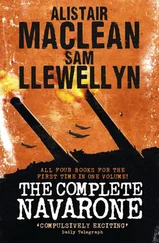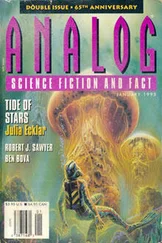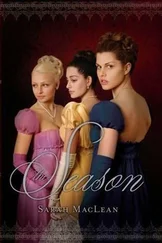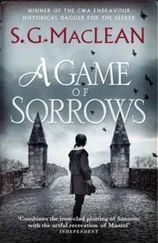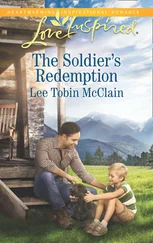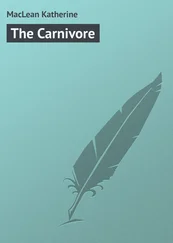‘I think you are right,’ said William. ‘Unless it was the beggar man himself who killed the apprentice?’ He said this more in hope than expectation, and offered no argument when I disagreed with the idea.
‘Poison would not be Lang Geordie’s style. A knife in the back in a dark alleyway, and then being left to bleed in the gutter – that would have been Patrick Davidson’s fate at the hands of Lang Geordie or his men.’
‘Aye,’ said William, ‘the poison is the thing. And then the maps, and Marion Arbuthnott’s prescience of some evil to befall her father’s apprentice.’ He rubbed the heels of his hands into his eyes, as if to gouge the confusion from them. ‘What sense is to be made of it all?’
I swallowed the last spoonful of my porridge. ‘I do not know. These questions and others have been troubling me the whole night. But I mean to make sense of them, to make a start at least. You have business this morning?’
He nodded. ‘Yes, but I shall be here before twelve, and then we can walk up to the King’s College to take our dinner with John and Matthew before you must go to your appointment with Principal Dun.’ He paused. ‘You are still happy to meet with our friends again?’
When William had first received my letter telling him of my plans to make this trip to Aberdeen, and asking if I might lodge with him, he had taken it as a sign that I had emerged from the great black tunnel of despair that I had hidden myself in since my disgrace. He had written back to me almost instantly, suggesting that we should seek out some old friends of our student days who were to be in the Old Town at the time of my visit. My first impulse had been to say no, I could not face it, but Jaffray had dissuaded me from being so hasty. Now the meeting no longer filled me with dread. Indeed, the thought of seeing those friends again gave me some pleasure. ‘I will be glad to see them,’ I said. ‘But as for the morning, I mean to use it to examine your uncle’s notebooks. Jaffray is sure that if the flower used to poison Patrick Davidson is to be found, it will be found there.’
‘Then you must use my study. The light there is the best in the house, and it is the room furthest from the kitchen, so you will have peace. What these women find to gossip and cackle about the whole day long, I do not know. I am sure old Duncan only pretends at deafness to save himself having to listen to them. Is that not right, Duncan?’
‘I could not tell you, master. I have the deafness in one ear,’ said the old man, with a sly smile. ‘I’ll have the girl set a fire in your study for Mr Seaton here. The room will be cold at this hour of the morning.’ And he went off in search of the kitchen girl, who was still out at the goats.
‘You are a good master, William,’ I said to my friend. ‘Your servants are fond of you, and would do much for you, I think.’
‘I am very fortunate. But it is beyond even Duncan’s power to keep Elizabeth at rest. He and the girl do all they can, but the time is soon coming when she will need more help, and I fear she will not take it.’
‘Do you really fear so much for her?’
He sighed and put down his bread. ‘Aye, and with cause. She was ill, early this winter past, very ill, with a fever. She hardly swallowed a morsel – a bit of thin soup, little more – for nigh on three weeks. Sometimes she was so far in the fever she hardly knew my face. Dun had done all he could for her and I was on the point of sending for Jaffray when, thank God, she started to mend.’
‘But she is well now?’
He gestured helplessly. ‘She was never strong, and she has not the strength even that she had before her illness. The pregnancy is hard on her. I pray God morning and night that she will survive the birth.’
‘And the child, too.’
He looked at me sharply. ‘Oh, do not mistake me, Alexander. I love that child in her belly already, but at what price might I become a father? And then she insists she will feed the bairn herself. She will not listen to sense on the matter, Alexander; but she will not have the strength or the milk to nurse her own child. I am at a loss to know what to do with her.’
But I was not. An inspiration came to me; a gift from God in my mind: Sarah Forbes. ‘William, I think I may have an answer. We will talk on the road to the Old Town.’
He looked at me with curiosity but little optimism. ‘All right then, Alexander. I will see you after noon.’ And still with furrowed brow he took his hat and left on his morning’s business.
I spent the next few hours lost in wonder at the notebooks of James Cargill, William’s uncle. I had fancied – and I think Jaffray had too in the throes of his enthusiasm – that I would carry a small, neatly bound book back to Banff with me for the study of the doctor and the apothecary. The moment I stepped into William’s study I was disavowed of this notion. On the desk, Duncan had placed an old leather kist with a curved lid; beside it was a key. Duncan had been Dr Cargill’s servant before he had been William’s. I knew by the reverence with which he turned the key in the lock that these papers were to him a treasure more valuable than jewels. He opened the lid and let his hand rest briefly on a book on top, then moved aside for me.
‘The doctor’s most valuable books are in the Marischal College library now, but these papers have not been touched these thirteen years. Have a care of them.’
‘I will,’ I promised the old man, and, satisfied, he left.
I set to work immediately, lifting books or bundles out one at a time and trying to put them in order. There was no index, no catalogue, and indeed no apparent order in which the items had been set in the chest. At length I fixed on chronology as my best means of arranging the items and after some little time had the notebooks and bundles of letters and papers set out before me in the order they had been written. Jaffray had suggested that the colchicum would be most likely to have been sketched at the time of Cargill’s residence at Montbéliard. Consequently, I began with the first of his notebooks from 1596. The work was meticulous – the hand a fine italic and the abbreviations precise. The drawings were as detailed and careful and exact as any artist might have done, the colours rendered in words as well as Jamesone could have rendered them in paint. Not all was in Latin – true, the scientific and geographical detail was in clear and exact academic language – but much of what accompanied it was written in the Scots tongue. Had I not been engaged on such pressing and important work, I could have spent many contented hours reading through the journals of the student days abroad of James Cargill. I resolved that once I had found what I was looking for, I would ask William to allow me to take three or four of the notebooks back to Banff.
It was towards the end of the third book that I found it at last: colchicum mortis , the plant that brought death. Cargill had sketched and labelled every aspect of it from seed to petal. Every detail of every part of the plant was drawn with what could only have been a very great effort at accuracy, and the moment I saw the sketch, colourless though it was, of the plant in flower, I knew I had seen it before. I had seen its globe-like head, large and yet delicate above its narrow, dark, strap-like leaves. The description in Scots given by Cargill of its colour was perfect. ‘The petals of the plant in flower,’ he wrote, ‘are like the pale grey blue of the winter sky over the northern sea after it has snowed.’ It was just that, exactly. And he wrote too of the terrible properties of this exquisite flower, the poison from its seeds that would send a man into convulsions before paralysing him; the certainty of death. He finished his account with, ‘Found only in the mountain passes between Basel and Montbéliard. Not known to be transported or to endure elsewhere. Dei Gratia.’ But Cargill’s God, like mine, had been minded to change his blessing, and the awful, beautiful plant had found a Scottish sanctuary and was growing somewhere in Banff. I knew, for I had seen it. I had seen it in the hand of a woman. But where, in whose hands, should every beat of my heart depend on it, I could not remember.
Читать дальше
